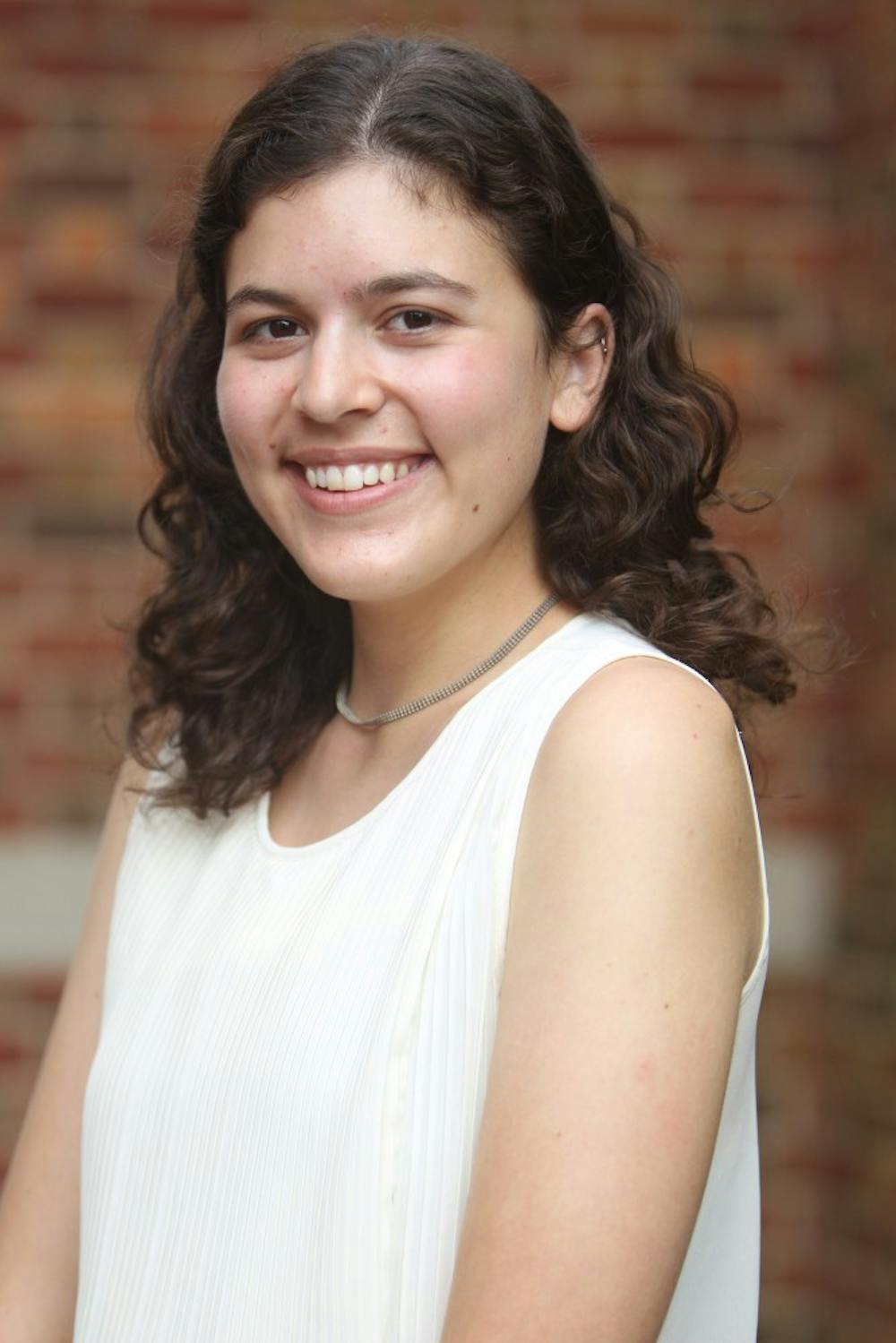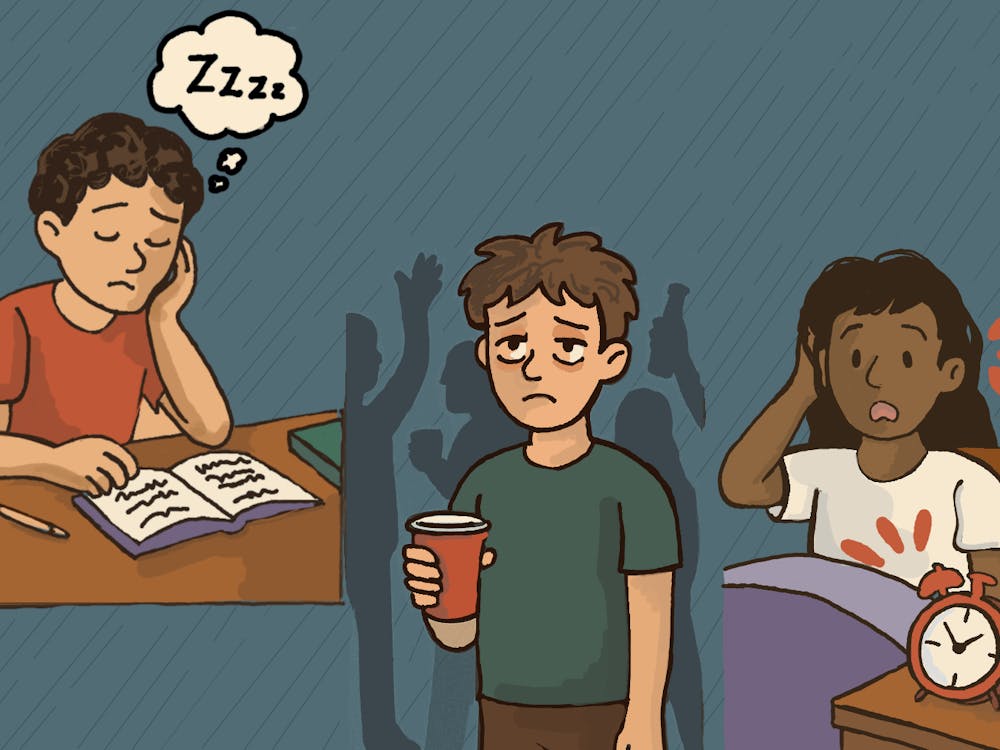One afternoon during my Women and Gender Studies class, we were instructed to go around the room stating our names and what we were passionate about. Many people said they were passionate about traveling, others said basketball, but few said anything even remotely related to their majors. The girl sitting next to me turned to me and asked, “I’m a fourth year, but am I supposed to know what I’m passionate about?”
It doesn’t feel like too long ago when my mom cradled my little body in her arms, and she asserted that I would follow her footsteps and become a doctor, or when my father laughed in response to my silly arguments and declared that I should be a lawyer. I would spend hours on end sitting in my room late into the night filling the pages of my journals with sentiments. But as imaginative as I thought I was, I just wasn’t able to envision myself dressed in a stiffly bleached lab coat or standing before a judge in a bleak courtroom.
When I was younger, the possibilities seemed endless. I know that we have all had that phase where we would lay sprawled on our bed, marveling at photos of outer space, eyes glazing over with the dream of becoming an astronaut as our head sunk into the soft pillow. We used to think we could conquer the vastness of the world that lay beyond our square ceiling, that our smallness does not represent our insignificance. At what point did the world become so fragile and foreboding? When did I stop dreaming about the possibilities and start having nightmares about the impossibilities?
It troubles me to think that from such an early age, we obsess over what profession we will undertake rather than about what kind of person we will become — learning to equate our grades, jobs and salaries with our personal value.
David Brooks wrote a New York Times article entitled “The Moral Bucket List” in which he separates virtues that belong to the business and social realms — “It occurred to me that there were two sets of virtues, the résumé virtues and the eulogy virtues. The résumé virtues are the skills you bring to the marketplace. The eulogy virtues are the ones that are talked about at your funeral — whether you were kind, brave, honest or faithful.”
We are taught to fill our résumés with one impressive accomplishment after another — thinking that anything less deems us unworthy of a financially stable job. From an early age, we catch on to the idea that we should always aim for success, but the definition of “success” seems to change drastically throughout our lives from “following your dreams” to “getting a job with a six-figure salary.” It’s difficult not to have our professions define us in some form or another, but it’s crucial to remember that no matter what, no GPA, major or job will ever outweigh the type of people we grow up to be.
The other day, I attended Dorianne Laux’s poetry reading at the Special Collections Library and her presence alone seemed to ooze an infectious passion. From the moment she described reading poetry and smoking cigarettes as her only form of exercise, to the moment she said, “I think that’s what poets are; we’re just kids in a sandbox with a bunch of sticks and gum-wrappers” — she stressed the importance of having a “serious kind of fun” with whatever it is that we choose to pursue.
Laux claims that “What bothers me most is that someday the moon will spiral right out of orbit” in her poem “Facts About the Moon,” and I, too, fear that I will roll off my axis and slip into a stale and dulled world that no longer makes my brain tingle and heart flutter like it once did when I was younger — that I will lose touch with the passionate child within me.
I remember my father sitting me down onto his lap and telling me stories of how he dreamed of being a cartoonist one day. He would stand on Brooklyn street corners, he told me, selling his sketches for a few cents apiece, only to come home to his mother tearing up those papers, those drawings — those dreams — into a sad confetti that drifted into the bottom of the garbage can.
My father also told me that he wanted to be a taxi cab driver. At the time, I thought it was a strange thing to aspire to be, but he justified it by saying that he wanted to travel and meet people. Now, I can envision him sitting in the driver’s seat of a yellow taxi parked by a narrow sidewalk as he flickers off his on-duty sign and sketches a cartoon inspired by his previous passenger, using the hardness of his leather steering wheel as his makeshift desk.
Nonetheless, my father ended up in the real estate business like the majority of his family, and although he would be considered “successful” by today’s standards, he never did become a cartoonist or a taxi cab driver like he originally wanted to when he was younger.
When people ask me what I want to major in and I hesitatingly tell them that I’m considering studying English literature, I often get one of two responses — but sometimes both — either a sneer or a condescending, “What do you plan on doing with that degree?” Sometimes, they will be blunt and tell me I’m making the conscious decision to remain unemployed for the rest of my life.
In a defensive response, my mind is wired to think back to those sleepless nights when I would write until my fingers ached and my pen ran dry, and those mornings when I would wake up to my hand clutching my journal as if it were an extension of my body. I often find myself silently wondering what would have come of my father if he had dared to draw and to drive, and then I wonder where I will go if I dare to read and to write and to let the child within me succeed.







